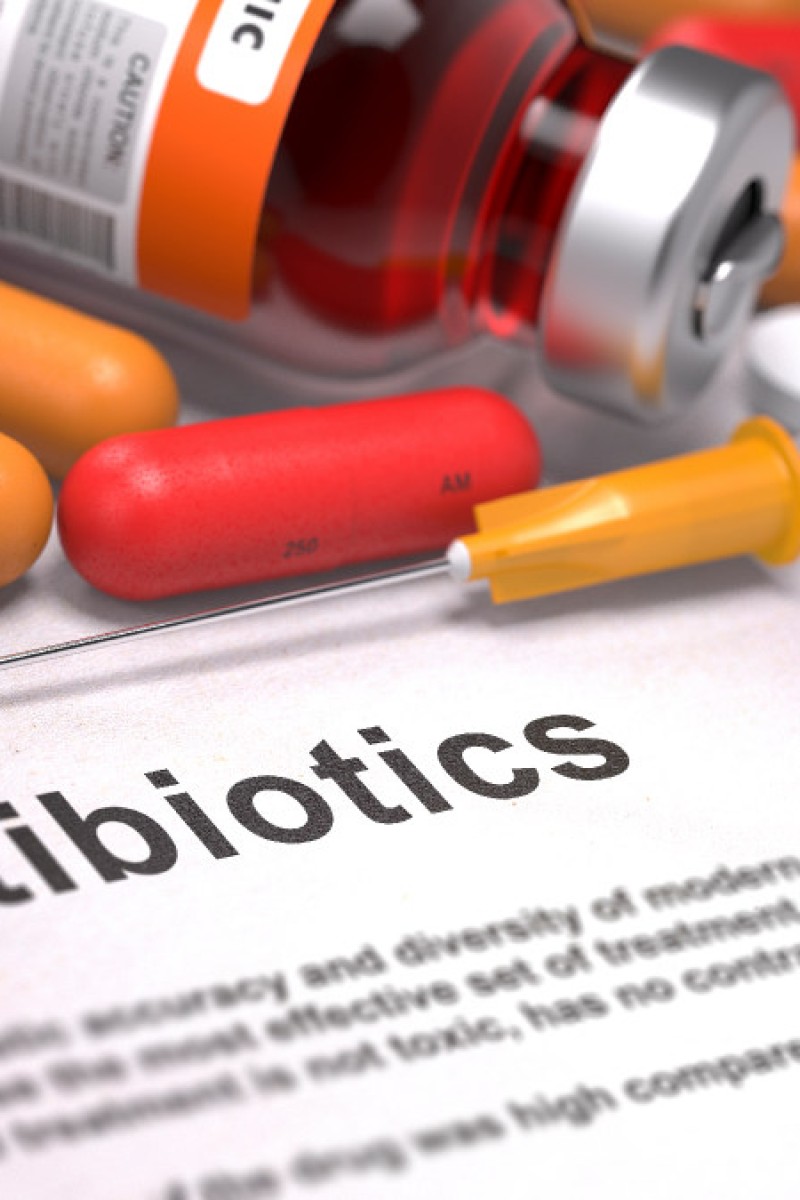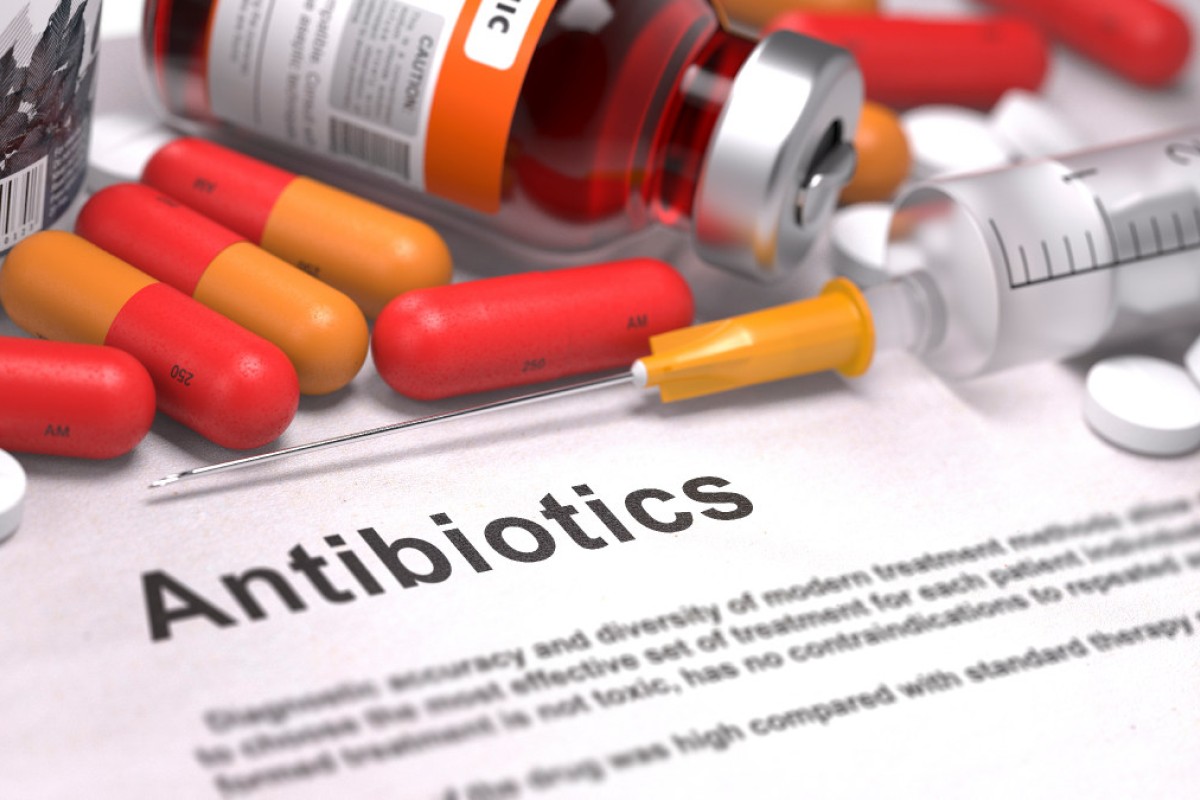
5 things you need to know about antibiotics
Antibiotics are meant to help our bodies fight against harmful bacteria and keep it from growing inside us, but did you know taking too many over time can actually strengthen the bacteria?
 These facts about antibiotics might surprise you.
These facts about antibiotics might surprise you.Alex Paul is a 10-year-old student at the Harbour School in Hong Kong, who is intrigued by quantum physics, enjoys solving complex math problems, and has researched numerous topics in science. Last year, Alex was invited to give a presentation on antibiotic resistance at the Global Issues Conference in Cyberport. He was recently interviewed for the TVB Pearl Report on Antimicrobial Resistance, which gave him an opportunity to spread the message on this important topic.
Antibiotics have been used to help humans treat infections since the Second World War. However, antibiotics are notoriously known to lose their ability to control or kill bacterial growth. This is called “antibiotic resistance”, and though this is a natural phenomenon that can’t be avoided, the misuse of antibiotics makes this occur faster.
It’s not you, it’s the bacteria
You may think humans are the ones who become resistant to an antibiotic, but it is actually the bacteria that become resistant. Antibiotics generally work by stopping the bacterial cells from multiplying. For example, penicillin, a type of antibiotic, works by blocking the bacterium from building a cell wall, which then causes the bacteria to die. While the bacteria die, however, some will still survive in the presence of antibiotics. This is because millions of mutations occur as bacteria multiply. These “resistant” mutations allow the bacteria to continue to survive and multiply making medicines less effective.
How to spot if you’re getting the flu and what to do about it
From pharmacies to farms
It was calculated that in 2012, 38.5 million kilograms of antibiotics were used in the mainland’s pigs and chickens. This needs to be stopped. Most of the antibiotics are unnecessarily used as growth promotors and protect the animals against bacteria. Resistant bacteria will then travel from the farm through the workers, dust, waste, and even in the meat we eat.
We are often reminded to cook our food well, but even in well cooked meat bacteria can survive, and cooking alone won’t get rid of all the consequences of antibiotic overuse in farming. A simple way we can help this serious issue is by only buying grass-fed organic meat and animal products. Knowing the sources of your meat and paying attention to country laws will help you make better food consumption choices.
This is why you shouldn’t take antibiotics for seasonal influenza
Can you cure a cold with antibiotics?
During the winter season, many of us come down with a cold or flu. Antibiotics are meant to kill bacteria, not viruses, so it is important to note that colds are generally caused by viral infections. If you were to take antibiotics, they would only be wasted and would even increase the chances of the bacteria in your body building resistance.
No one should ever pressure their doctor to prescribe antibiotics. If you’re really in need of antibiotics, your doctor will give them to you. If you are given antibiotics, make sure you follow your doctors orders and complete the full recommended course, even if you feel better before it ends.
How to eat your way to a stronger immune system and beat the flu
The drop in antibiotics
Fewer antibiotics are being invented, and even more drugs are falling out of the market. In general this is either because they seem no longer effective or because companies have stopped producing that medicine. Many pharmaceutical companies have stopped creating new antibiotics because of the high expenses involved in the discovery, testing, and marketing of new medications – a company may need to wait around 10 years before it makes a project. A solution is for governments across the globe to start funding these vital projects, otherwise millions may begin to die of drug resistant infections.
How to prepare and cook food safely...so you don’t accidentally food poison yourself!
New ways to treat and prevent infections
All hope is not lost. Vaccines, probiotics, and new procedures open up new ways to control bacterial infections such as MRSA infection and tuberculosis. Vaccines are designed to prevent infections rather than cure them like antibiotics. Probiotics or “healthy bacteria”, on the other hand, help to strengthen the immune system and help your body manage harmful bacteria. If we work to develop these new solutions and use antibiotics responsibly, we can stop millions of people from dying from multidrug resistant sickness.
People need antibiotics to fight infections. Without them, we would be more likely to get seriously ill. For example, common infections such as strep throat or ear infections could lead to more serious problems: it would increase the harmful risks of surgeries like knee replacements, and would make treating cancer more dangerous to the patient. It is important for us to tackle irresponsible use of antibiotics in farms, educate doctors on oversubscription, stop the misuse of prescriptions, and encourage companies to continue their research.
